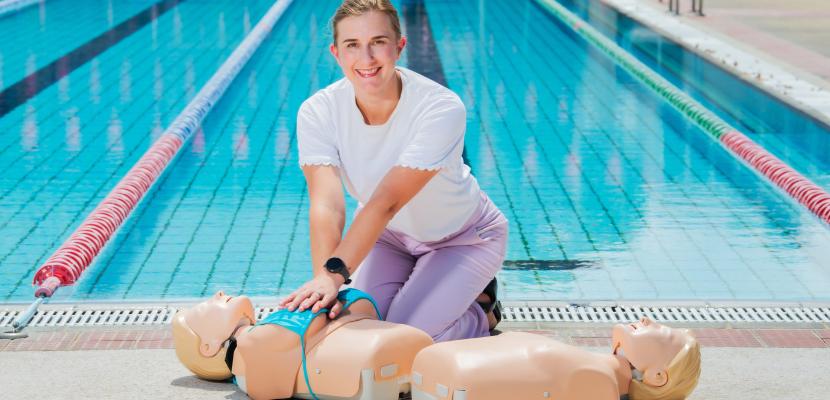
Women are less likely than men to receive lifesaving cardiopulmonary resuscitation (CPR) from bystanders after suffering cardiac arrest.
Now a new study highlights one possible reason: 95 percent of CPR training manikins do not have breasts or are flat-chested.
While CPR doubles a person’s chance of surviving cardiac arrest, women are 14 percent less likely to receive it, and are more likely to die in the aftermath.
Dr Jessica Stokes Parish of Bond University said the research team began to suspect the disparity in CPR rates between men and women might be linked to the scarcity of training manikins with breasts.
“Previous studies have shown that some bystanders fear providing CPR to women in out-of-hospital environments due to fear of being accused of assault, or for cultural reasons,” Dr Stokes Parish said.
“Conducting CPR training on manikins that accurately represent the female form could be key to helping break down these stigmas.
“Yet we knew that anecdotally, CPR manikins with breasts were few and far between.”
Just how rare became apparent during the study.
Of 20 CPR manikins on the market, eight were identified as male, seven had no gender or sex specified (all of these had flat chests), and the remaining five manikins were female. However only one of these had breasts.
Ironically, the world’s first CPR manikin, introduced in 1960, was modelled on a female – a dead teenager who was found floating in the Seine in Paris.
Dr Stokes Parish, an expert in simulation-based medical training, said the issue transcended clinical outcomes.
“All simulation-based training should aim to be equitable, best practice, and result in improved health outcomes for all, regardless of sex, gender, age, or ethnicity,” she said.
“This new work provides us an opportunity to think about how we train first aid and what equipment we use.”
“There are companies out there working to rectify this problem including Prestan, a company which has just released female CPR manikins, and Paeds Education, a first aid company that adds their own breasts to CPR trainers so that the workshops are more educational.”
“It’s a step in the right direction but we have a long way to go.”